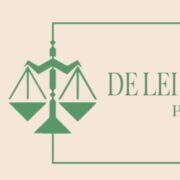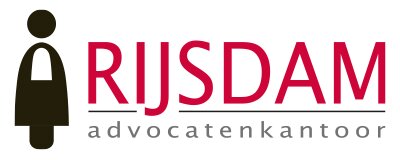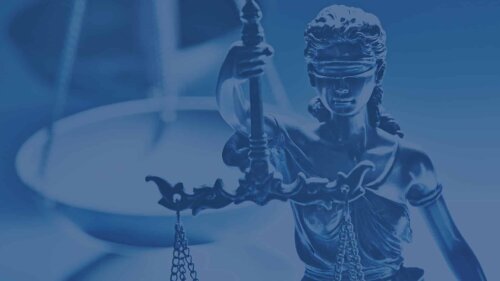Best White Collar Crime Lawyers in Leiden
Share your needs with us, get contacted by law firms.
Free. Takes 2 min.
List of the best lawyers in Leiden, Netherlands
About White Collar Crime Law in Leiden, Netherlands
White collar crime refers to non-violent, financially motivated crimes typically committed by individuals, businesses, or government officials. In Leiden, as in the rest of the Netherlands, white collar offenses include fraud, embezzlement, bribery, tax evasion, money laundering, insider trading, and forgery. These crimes are investigated by specialized agencies and prosecuted under both Dutch national and local laws. Due to Leiden's vibrant academic and commercial environment, there is careful scrutiny on financial and administrative activities to prevent and detect such offenses.
Why You May Need a Lawyer
People may require legal assistance with white collar crime cases for several reasons. You might be under investigation for suspected fraudulent activities, face charges of money laundering or tax evasion, or require representation during interviews with authorities. Likewise, if your business is implicated in regulatory violations or you suspect internal fraud, a lawyer can help protect your rights and navigate complex legal procedures. Legal support is critical for negotiating with prosecutors, ensuring compliance, and crafting effective defense strategies in criminal or regulatory proceedings.
Local Laws Overview
White collar crime in Leiden is prosecuted primarily under the Dutch Penal Code (Wetboek van Strafrecht) and specific regulations like the Anti-Money Laundering and Anti-Terrorist Financing Act (Wwft). The Dutch legal system emphasizes thorough investigation and due process, with the FIOD (Fiscal Information and Investigation Service) and the Public Prosecution Service often handling complex financial crime cases. Penalties for white collar offenses can include fines, imprisonment, restitution, and professional bans. The severity of a sentence depends on factors such as the scope of the offense, the amount of financial harm inflicted, and any prior criminal history. Recent efforts include increased attention to compliance in universities, startups, and established companies to prevent issues like corruption or cyber-related fraud.
Frequently Asked Questions
What are the most common types of white collar crime in Leiden?
Common types include fraud, embezzlement, bribery, money laundering, forgery, insider trading, false accounting, and tax evasion.
How are white collar crimes investigated in Leiden?
Specialized authorities like the FIOD and the police investigate white collar crimes, often using forensic accounting, digital evidence, and interviews.
What penalties can be imposed for white collar crime in the Netherlands?
Penalties range from fines and compensation orders to prison sentences and bans from professional activities, depending on the seriousness of the offense.
Can companies be prosecuted for white collar crime?
Yes, both individuals and legal entities (companies) can be prosecuted under Dutch law for white collar offenses.
What should I do if I am contacted by an investigator?
It is important to consult with a specialized white collar crime lawyer before responding to any questions or providing statements to authorities.
Is it possible to settle a white collar crime case out of court?
In some cases, prosecutors may offer settlements such as fines or restitution payments to resolve matters without trial, but this depends on the specifics of each case.
What if the crime was committed unintentionally or due to oversight?
Intent and knowledge are important factors in white collar cases, but negligence or failure to meet regulatory obligations can still result in liability and penalties.
How long does a white collar crime case usually take?
The duration varies based on the complexity of the case. Investigations and court proceedings can take months or even years, especially in intricate financial matters.
Are there legal defenses to white collar crime?
Yes, defenses might include lack of intent, insufficient evidence, procedural errors, or demonstrating compliance with legal obligations.
Can I get legal aid or support if I cannot afford a lawyer?
The Dutch legal system offers possibilities for legal aid or subsidized legal assistance if you meet certain financial criteria. Specialized organizations can also provide advice.
Additional Resources
For those seeking more information or support regarding white collar crime in Leiden, the following may be useful:
- FIOD (Fiscal Information and Investigation Service) - Investigates financial crimes.
- Openbaar Ministerie (Public Prosecution Service) - Handles prosecution of criminal offenses.
- Raad voor Rechtsbijstand (Legal Aid Board) - Information on legal aid eligibility.
- Nederlandse Orde van Advocaten (Dutch Bar Association) - Find specialized lawyers.
- Rechtspraak (Dutch Judiciary) - Public access to court information and procedures.
- Trade and Commerce organizations in Leiden - For business-related compliance advice.
Next Steps
If you believe you are involved in or impacted by a white collar crime case in Leiden, it is important to act promptly. Begin by gathering all relevant documents and details about your situation. Consider reaching out to a lawyer who specializes in white collar crime for a confidential consultation. Many law firms in Leiden offer initial assessments to discuss your options, potential defenses, and the next course of action. If necessary, check your eligibility for legal aid or other support services. Taking early action can protect your rights and improve your chances of achieving a favorable resolution.
Lawzana helps you find the best lawyers and law firms in Leiden through a curated and pre-screened list of qualified legal professionals. Our platform offers rankings and detailed profiles of attorneys and law firms, allowing you to compare based on practice areas, including White Collar Crime, experience, and client feedback.
Each profile includes a description of the firm's areas of practice, client reviews, team members and partners, year of establishment, spoken languages, office locations, contact information, social media presence, and any published articles or resources. Most firms on our platform speak English and are experienced in both local and international legal matters.
Get a quote from top-rated law firms in Leiden, Netherlands — quickly, securely, and without unnecessary hassle.
Disclaimer:
The information provided on this page is for general informational purposes only and does not constitute legal advice. While we strive to ensure the accuracy and relevance of the content, legal information may change over time, and interpretations of the law can vary. You should always consult with a qualified legal professional for advice specific to your situation.
We disclaim all liability for actions taken or not taken based on the content of this page. If you believe any information is incorrect or outdated, please contact us, and we will review and update it where appropriate.













